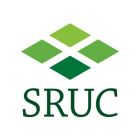When I speak of the purpose of self-culture, I mean that it should be sincere. In other words, we must make self-culture really and truly our end, or choose it for its own sake, and not merely as a means or instrument of something else. And here I touch a common and very pernicious error. Not a few persons desire to improve themselves only to get property and to rise in the world; but such do not properly choose improvement, but something outward and foreign to themselves; and so low an impulse can produce only a stinted, partial, uncertain growth. A man, as I have said, is to cultivate himself because he is a man. He is to start with the conviction that there is something greater within him than in the whole material creation, than in all the worlds which press on the eye and ear; and that inward improvements have a worth and dignity in themselves quite distinct from the power they give over outward things. Undoubtedly a man is to labor to better his condition, but first to better himself. If he knows no higher use of his mind than to invent and drudge for his body, his case is desperate as far as culture is concerned.
William Ellery Channing, “Self-Culture”

